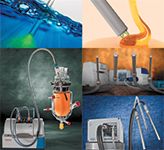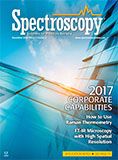art photonics GmbH
Company Description
art photonics GmbH is the world's leading manufacturer of unique fiber optics for the mid IR-range, pioneering the patented technology of polycrystalline PIR-fibers from silver halides and assembling a variety of specialty laser cables, bundles, and spectroscopy probes from all types of silica and IR-glass plus PIR-fibers-to cover the broad spectral range 0.2–16 µm. art photonics was founded in 1998 in Berlin to develop and produce specialty fiber products under the motto "broad spectra fiber solutions." To match fast business growth, in 2013 production space was tripled to run ISO-9001 certified production with a full range of production and test equipment-to provide complete quality control in-house. A team of highly skilled professionals enables fabrication and sales of standard and customized products, while the R&D group develops in multiple projects the new types of fiber systems for spectral process control in biotechnology, space, and industrial chemical, petrochemical, and pharma applications. The latest projects are focused on biophotonics-to develop low cost spectral sensors with tiny fiber probes to be used in clinics for biomedical in-vivo diagnostics of tissues-like tumor margin definition, early detection of cancer, or other diseases by endoscopy methods, and so on.

Applications
- Remote reaction monitoring in–line
- Process spectroscopy for industrial process analytical technologies (PAT) used in chemical, petrochemical, atomic, food, and pharma industries
- In-situ control of gluing, drying, and polymer curing processes
- Crystallization process screening
- Full automated fermentation process control with process-interfaces
- Biomedical diagnostics in-vivo with spectral fiber sensors
Major Products/Services
FlexiSpec(r) product line includes innovative fiber optic probes, bundles, and fiber couplers designed for in-line process-spectroscopy of a broad spectral range: from 200 nm to 16 µm.
FlexiSpec(r) Probes design family enables measurement of ATR-absorption, transmission, or transflection spectra; to run diffuse reflection, fluorescent, or multi-spectral analysis when coupled to any FT-IR, FT-NIR, or grating spectrometer; LED, QCL, MEMS, or other type spectral sensor to be used in-field or in PAT-applications, eliminating the need for time consuming sample collection or preparation.
FlexiSpec(r) industrial probes of standard 12 mm diameter are compatible with process interfaces required to clean probe optics in contaminating media in full or semi-automated mode. Probes can comply with ATEX standards when used with SensoGate-FOS or Ceramat-FOS process interfaces-to be retracted, cleaned, and calibrated during chemical process for remote molecular analysis of any liquid, gas, or solid mixtures under harsh process conditions.
FlexiSpec(r) industrial probes of 6.3 or 12 mm diameters are robust for various applications in a broad temperature range, at a high or low pressure, can withstand vibration, aggressive, or toxic media, while a tiny biomedical probes of small 1–3 mm diameter are dedicated for biomedical diagnostics and can withstand the required sterilization conditions.

art photonics GmbH
Rudower Chaussee 46
12489 Berlin, Germany
TELEPHONE
+ 49 30-6779 887-0
FAX
+ 49 30-6779 887-99
WEB SITE
NUMBER OF EMPLOYEES
30
YEAR FOUNDED
1998

Newsletter
Get essential updates on the latest spectroscopy technologies, regulatory standards, and best practices—subscribe today to Spectroscopy.
Scientists Use Water and Light to Uncover Honey Adulteration
July 30th 2025In a 2025 study, Indian researchers demonstrated that combining near-infrared (NIR) spectroscopy with aquaphotomics enables rapid, non-destructive detection of adulterants in honey by analyzing changes in water’s spectral behavior. Using chemometric models, they accurately identified and quantified six common adulterants, offering a powerful tool for food authenticity and quality control.
Scientists Use AI and Spectroscopy to Detect Fake Honey in Bangladesh
July 29th 2025Researchers in Bangladesh have developed a rapid, non-destructive method to detect honey adulteration using UV-Vis-NIR spectroscopy paired with machine learning. Their findings could protect consumers and support food quality enforcement.